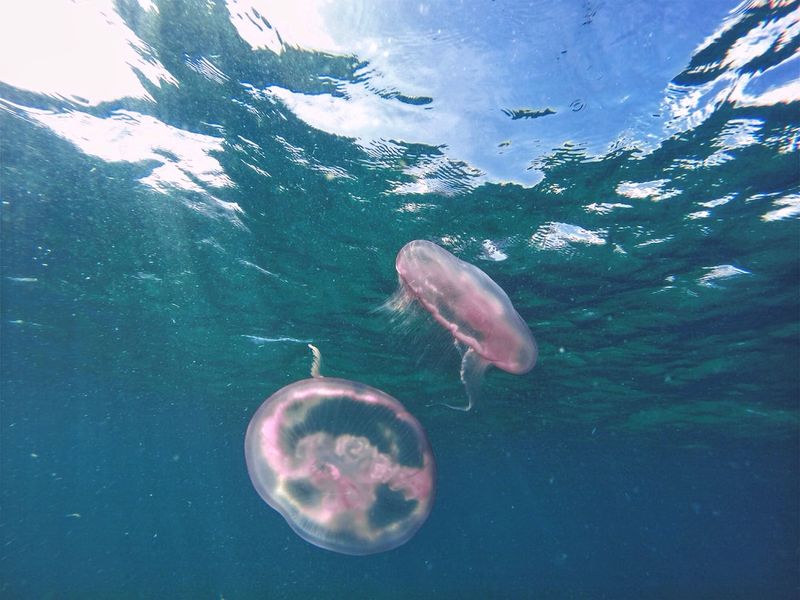American Research Boat to Come to Cornwall Looking for Great White Sharks
Introduction
An American-based research group, Ocearch, is planning to come to Britain next year in search of great white sharks off the coast of Cornwall and Ireland. Chris Fischer, the founder of Ocearch, believes that these large predators may be migrating north each summer, past the coasts of Cornwall and Ireland from the Mediterranean. This behavior is similar to what has been observed off the US coast. Ocearch collects ocean data to assist scientists, and they hope to find and tag great whites in the British waters next summer.
Exploring the Seas
White sharks, also known as great whites, are the largest predatory fish on Earth and can be found in cool waters close to the coast throughout the world’s oceans. They are often spotted near South Africa, other parts of Africa, California, and New Zealand. Scientists believe that great whites have no problems migrating long distances in search of prey, which is why they are found in various locations worldwide.
A Mystery in Cornwall
While white sharks are prevalent in many parts of the world, there have been no recorded sightings off the coast of Cornwall. Shark biologist Greg Skomal stated that it is a mystery as to why none have been detected in the area. He believes that based on their behavior, great whites should be present off the coast of Cornwall. However, Georgia Jones, an ecologist and shark specialist, disagrees. She suggests that if white sharks were preying on seals in the area, there would be evidence of it. Jones also points out that the shark population in the Mediterranean, where the great whites are believed to migrate from, is small. She speculates that the sharks may have initially gotten lost when they migrated to the Mediterranean.
Scientific Research and Ethical Questions
Ocearch’s research methods, which involve raising sharks out of the water to tag them, have faced criticism for being too intrusive. De Maddalena, a shark expert, argues that there is no need for such invasive research solely to demonstrate the presence of great whites in UK waters. He suggests that the lack of reliable observations of the species in Cornwall indicates that they are extremely rare there.
Editorial: Exploring the Unknown
The possibility of great white sharks swimming off the coast of Cornwall and Ireland brings excitement and intrigue. The idea that such powerful and awe-inspiring creatures could be present in British waters challenges our perceptions of the natural world and sparks curiosity. It also raises important questions regarding scientific research and the ethical considerations surrounding it.
Understanding Ocean Life
Exploring the seas and studying marine life is crucial for expanding our understanding of the natural world and preserving the delicate balance of ecosystems. Ocearch’s mission to collect ocean data and assist scientists in their research is commendable. Their efforts can provide valuable insights into the behaviors and movements of marine species, helping us conserve and protect them.
The Balance of Intrusive Research
While the knowledge gained from research and tagging programs can be invaluable, it is essential to strike a balance between scientific advancement and ethical considerations. The controversy surrounding Ocearch’s methods highlights the need for responsible research practices. Scientists must ensure that their methods do not harm the very creatures they seek to study and protect.
The Presence of Great Whites
The absence of documented white sharks off the coast of Cornwall raises interesting questions. Are the sharks truly rare in this area, or is there a lack of attention and research focused on this particular region? The arrival of Ocearch and their dedicated pursuit of great whites could potentially shed light on their presence or absence in British waters.
Preserving Ocean Ecosystems
Regardless of the outcome, the exploration for great white sharks emphasizes the need to protect our oceans and their diverse ecosystems. The presence of these apex predators is indicative of a healthy marine environment. As humans, we have a responsibility to preserve and conserve these habitats to ensure the continued existence of marine species.
Advice: Balancing Research and Conservation
It is essential for researchers, conservationists, and governing bodies to work together to balance scientific research with ethical considerations. Here are some recommendations:
1. Implement non-invasive research methods:
Develop innovative techniques that minimize intrusion and stress on marine wildlife. Advances in technology, such as remote tagging devices, could provide valuable data without the need for physically handling the animals.
2. Collaborate and share knowledge:
Scientists, conservation organizations, and local communities should collaborate to pool resources and share knowledge. This approach can lead to a more comprehensive understanding of marine ecosystems while avoiding unnecessary duplication of research efforts.
3. Prioritize conservation efforts:
Conservation efforts should always be at the forefront of scientific research. Researchers should work closely with local conservation organizations to ensure that their findings contribute to the preservation and sustainable management of marine environments.
4. Conduct comprehensive environmental assessments:
Before conducting research expeditions, thorough environmental impact assessments should be carried out to evaluate any potential risks or negative consequences to marine ecosystems. These assessments can guide researchers in choosing the most responsible and sustainable practices.
By following these recommendations, researchers can enhance our understanding of marine life while minimizing harm to the creatures and the environments they inhabit. The exploration for great white sharks off the coast of Cornwall serves as a reminder of the wonders that lie beneath the surface of our oceans and the imperative to protect them for future generations.

<< photo by Noah LaStella >>
The image is for illustrative purposes only and does not depict the actual situation.




